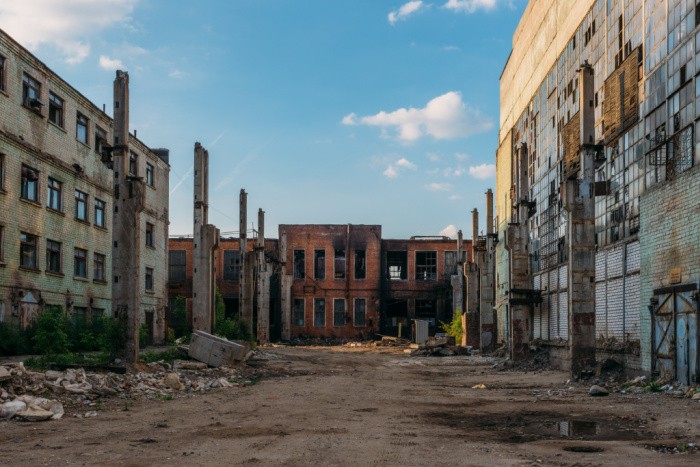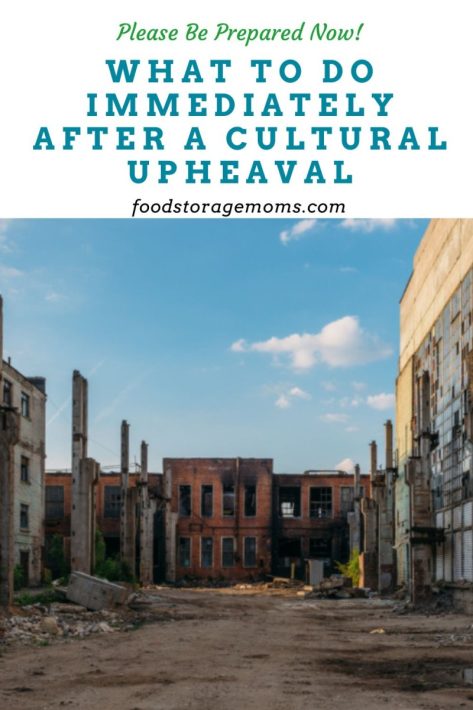
On the morning of December 26, 2004, the deadliest tsunami in our modern history took the lives of over 230,000 people in just a matter of minutes. They had no warning and nowhere to hide. There were reports of waves reaching heights of 100 feet and traveling at speeds of up to 500 mph! Its aftermath left a total of 18 countries, including India, Indonesia, and several other Indian Ocean countries, completely devastated while displacing millions of people. It’s important to know what to do immediately after a cultural upheaval.
What to Do IMMEDIATELY After A Cultural Upheaval
Now, I want you to imagine if you walked along the beach that morning and witnessed those terrifying waves crashing towards you. Besides wetting your pants, you may be immobilized by fear. But when we’re faced with a traumatic event, the last thing that we want is to be caught frozen in our steps. It could kill you.
You may have all the prepping equipment and supplies at your disposal, but if you don’t know what to do when the time comes, it won’t matter. Being prepared for any disaster is a great place to start, but you must know what to do immediately after the disaster. How to Survive Mentally

Stay Calm and Get to Safety
This bit of advice is easier said than done, but remaining as calm as possible will help you make better, quick decisions and help others who may not be coping with the situation as well as you are. At the same time, make it your number one priority to get away from the immediate danger as quickly as possible. Whatever the emergency may be, whether it’s a natural disaster or an active shooter at a grocery store, do whatever it takes to get you and your family to a safer location.
Treat Injuries
Once the threat has passed and you’re in a safe location, now’s the time to inspect and treat any injuries that you or your family members may have received. Use your first aid kit to try and manage any life-threatening injuries to hold them over until you can find a doctor or get to a hospital. Even if you only deal with minor cuts and scrapes, clean and treat them so they don’t become infected.
Communicate with Family and Friends
If you’re separated from your family when the cultural upheaval hits, you’ll need to tell them where you are and whether you are safe. Communicating with them will allow you all to meet up at a certain agreed-upon location should you need to do so.
It also wouldn’t hurt to let your extended family and friends know your current situation and give them updates every few hours. Even if your cellphone happens to be working, you’ll probably have a hard time getting through due to the surge of calls in your area. If you can’t reach them, leave a text message at the very least.
Things to Look For
Now it’s time to find out how severe a situation you’re dealing with is, whether it’s a local disaster or if it affects a much larger region. Learning this information early on will determine if your family should bug-in or bug-out. You’ll need your handheld radio to gather important information and if they’re encouraging you to evacuate. These are other things to look for:
- Does the danger appear to be local or much more significant?
- What do you hear? (Sirens, horns, traffic, gunfire…)
- What does the weather/sky look like?
- Do you still have power? If not, just how widespread is the power loss?
- Are people coming out or staying inside their homes?
Fill Up on Gas
Following a major catastrophe, one of the first places generally heading towards is the gas station, especially when you must get as far away from town as possible. If you can find one that doesn’t have long lines, I’d encourage you to fill up on gas and purchase any last-minute supplies. I’ve told my readers to keep their car’s gas tank between 3/4 to full for years. This makes it possible to leave the area without filling it first.
Suppose your car is no longer operable due to an EMP attack or another reason. In that case, you’ll need to gather supplies from your car and put them in your survival bag before setting off on foot or using other transportation methods.
This Generational 2024 Election Is a Critical Year
I never discuss politics or religion in my posts, but I will say this: this election is probably the most important one we have dealt with. You may wonder if I am nervous about riots; of course, I am. Could we have WWIII? I hope not, but it depends on the outcome of this election. Our Country needs a change, and it needs it now.
Other Important Steps to Do Early On
It would help if you considered a whole host of things following a disaster. These are some of the most important ones for you to remember:
- Review your emergency plan with your family.
- Turn on your handheld radio as soon as you can.
- Charge your cell phones and gather your power chargers.
- Gather flashlights and batteries if the power has gone out.
- Pull out your emergency kit (Will it stay on the main level of your home, or will you have to transport it to your vehicle?).
- Fill up your bathtub and water jugs with water (if the water is not contaminated).
- If you have time before a natural disaster, put your pets in a kennel so you don’t have to chase them when they become scared or care for them after the disaster has hit your immediate location.
- If you are separated from your pets, young children, or older neighbors, put identification, pictures, and contact information on their person.
- Ensure your windows and doors are secure, and set your security alarm.
Determine Whether to Bug In or Bug Out
Most preppers gather emergency supplies to bunker down in their homes following a disaster. Indeed, bugging out should always be your last resort because your home offers you the most shelter, security, and provisions. It’s where your family will be the safest in most situations.
But if your home is no longer safe, you must return to your bug-out location. This is why you should already have your bug-out plan and preparations to follow right after the disaster hits. That way, you’re ready to go should your situation change quickly. You’ll need to prioritize the items you will take with you because you won’t be able to carry everything.
Please NOTE: I will not leave my home; it would not be feasible. Everything I have is here that I will need.
Final Word
In some unfortunate circumstances, nothing can be done to prevent casualties when a cultural upheaval hits. However, knowing what to do immediately following a disaster can significantly increase your family’s chances of survival. You must also have your emergency supplies on hand long before the catastrophe arrives. May God Bless this world, Linda.
Copyright Images: Broken and Burnt Buildings AdobeStock_206756123 by Mulderphoto
The post What to Do IMMEDIATELY After A Cultural Upheaval appeared first on Food Storage Moms.
from Food Storage Moms
No comments:
Post a Comment